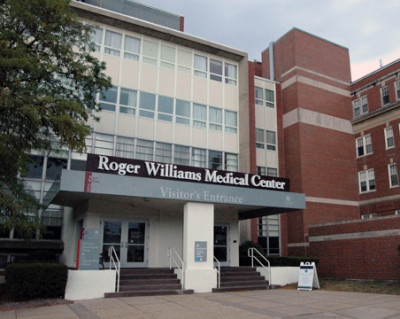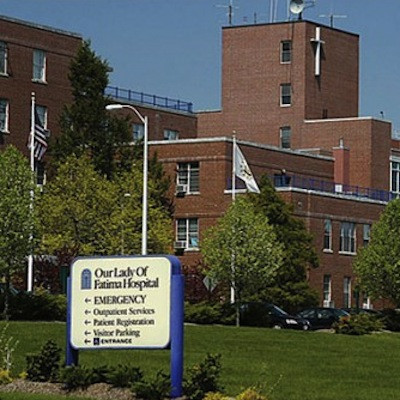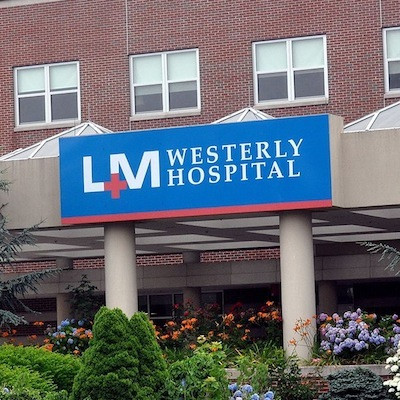NEW: HEALTH Reports Measles Exposure at Two Providence Hospitals
Monday, March 03, 2014
The Rhode Island Department of Health (HEALTH) is working with Rhode Island Hospital and Roger Williams Medical Center to notify patients who may have been exposed to a person with measles who was in both of these facilities last week.
The first potential exposure took place on February 25th at Roger Williams Medical Center, where a man was treated for a sore throat and fever. On February 28th that person developed a rash and was seen at the CVS Minute Clinic in North Attleboro, Massachusetts and the possibility of measles was recognized. He was referred to the Rhode Island Hospital Emergency Department, where he was until early on March 1st. Physicians there agreed that the clinical presentation was consistent with measles. He remained in the emergency department until early March 1stand was discharged to home isolation. This individual has no history of vaccination against measles.
The diagnosis of measles has not yet been confirmed by laboratory studies. However, the case meets Centers for Disease Control and Prevention (CDC) criteria for a probable case of measles. HEALTH and CDC recommend that people who were potentially exposed to the index case be identified and their vaccination status updated.
GET THE LATEST BREAKING NEWS HERE -- SIGN UP FOR GOLOCAL FREE DAILY EBLASTAbout measles
Measles is a contagious respiratory disease that usually lasts a week or two. Most people recover without any problems. In rare cases complications such as pneumonia and brain infections can occur. The virus that causes measles lives in the nose and throat and is spread into the air when an infected person coughs or talks. Measles can stay in the air for up to two hours after the contagious person has left the room, and can cause infection when inhaled by a susceptible person.
Measles looks and feels like a cold at first. Cough, high fever, runny nose, and red, watery eyes are common. These symptoms start ten to fourteen days after exposure. A few days later, a red blotchy rash starts on the face, and then spreads to the rest of the body. People with measles are infectious for four days prior to the development of rash, and remain infectious until four days after the rash has developed.
The best protection against measles after exposure is vaccination as soon as possible (preferably within 3 days). Measles vaccine is included in the MMR vaccine. MMR cannot be given to infants younger than one year of age, pregnant women, and those who are immunocompromised. For these individuals, the alternative is another product called immune globulin, which can help protect against the measles if taken within a week of exposure.
What you should do
Hospital/clinic staff at these facilities are identifying patients from their records and are calling individuals to assess their risk and make recommendations and arrangements for vaccination. Patients (or people accompanying patients) who were at the sites at the times listed below who have not been contacted by March 3rd should call the appropriate number indicated below.
Additional information about measles vaccination
- If a person was born in the United States before 1957, it is very likely that he or she is immune to measles. However, to increase the likelihood that a person is protected against measles, he or she should consider receiving a dose of MMR vaccine.
- If a person was born in the United States in or after 1957, and there is no written documentation of having one dose of MMR or measles-containing vaccine or serologic evidence of immunity, one must receive a dose of vaccine as soon as possible. Two doses are required for college students and school age students.
- If a person was born outside of the United States (regardless of the year of their birth), and there is no documentation of having two doses of MMR or measles-containing vaccine, or serologic evidence of immunity, that person must receive a dose of vaccine as soon as possible.
- A blood test showing you are protected against measles is considered evidence of immunity. However, having had the disease in the past alone is not evidence of immunity.
Related Slideshow: Check Out The Grades: Rhode Island Hospitals Report Card
A recent survey released by The Leapfrog Group assigns a Hospital Safety Score, using the report card system of A to F to each of the hospitals in Rhode Island. These grades are based on expert analysis of injuries, infections and errors that cause harm or death during a hospital stay.
Let's see how each of Rhode Island's hospitals were graded from highest to lowest:
Related Articles
- New Competition for HealthSource RI Emerges
- Smart Benefits: New Study Shows Health Costs Hurt Small Biz Hiring
- Smart Benefits: Healthcare Is A-Changing
- Smart Benefits: Next Steps in Healthcare Reform for Employers
- HEALTH Organizes Community Clinics for Influenza Immunization
- Chafee’s Budget: Healthcare and Social Services
- NEW: Spike in Drug Overdose Deaths Reported by HEALTH
- Awards Recognize RI Business’ Efforts to Promote Employee Health
- Smart Benefits: More Employers Offering More Health Plan Choices
- Guest MINDSETTER Dr. Michael Fine: 14 Ways to Stay Healthy in ‘14
- Providence Retiree Health Liability - $1.1 Billion Is 90 Percent Unfunded













